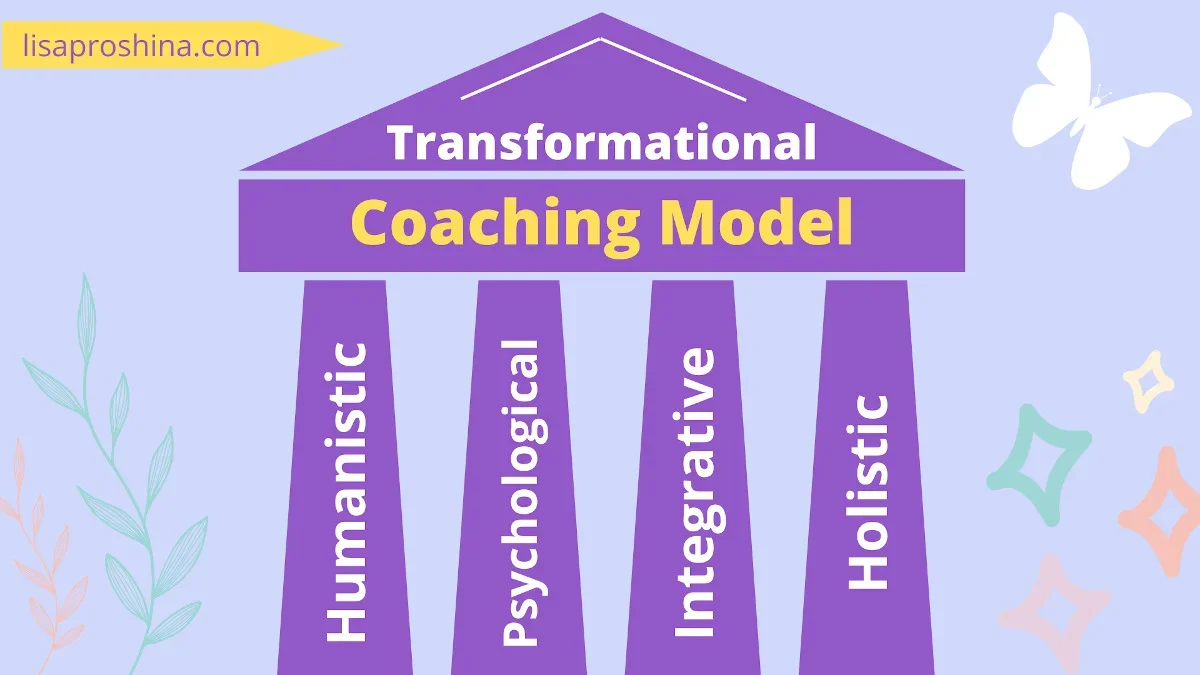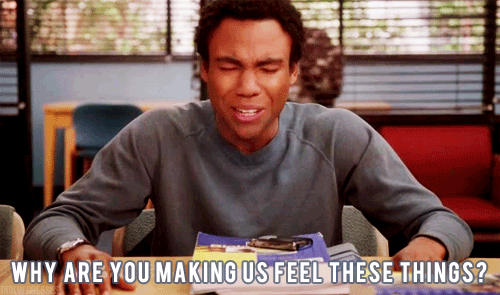What is transformational Coaching? (Part 2)
If you’ve clicked on this article, you’re probably wondering what transformational coaching is and how it relates to your circumstances. There are so many different types of coaching out there, and transformational coaching isn’t exactly clear on what it helps with by the name alone. What is the point of transformational life coaching? What exactly are we transforming? Why wouldn’t I just go to therapy? And what makes it different from life coaching? Why would I choose THIS? Well, let's get into it!
Why transformational life coaching?
Let’s start here:
Everyone wants a good life.
But a lot of us don’t know how to get there.
We try to build lives that feel good, meaningful, and satisfying.
….Or at the very least, bearable.
We read books.
We try strategies.
We attempt to make changes.
We tell ourselves to just do the work.
“The work,” means being aware of our inner world — our thoughts, habits, patterns, and beliefs — and intentionally shifting our minds and bodies in ways that serve us.
A lot of the time, it takes us doing “the work” to try and live the life we want to live.
I am not being hyperbolic when I say I think this is some of the most important work we can do. And that’s because…
we are not happy.
There’s a lot of important work, like political work, humanitarian work, and liberation from oppression.
However, that work is external. What matters just as much is the internal. But why does it matter just as much?
Why Are We So Unhappy?
As a society (at least in the United States)
We're stressed,
We’re mad
We’re disconnected.
Some of us are so done with this reality that we numb ourselves out to it entirely.
Others cling to what little they have and fend off anything that tries to take it away.
Some of us (like me) are so fucking tired we can barely get out of bed
And unfortunately, some of us are resorting to violence, rage, power, and ego-driven survival
It’s not hard to see why this world is HARD to live in.
Our bodies are trained to keep us safe, not happy. So we can get stuck in negative cycles that keep us addicted to rage, power, love, greed, etc.
Basically, we’re unhappy because we are just coping. Surviving. We’re living in survival patterns that have protected us
But this is the easy way out.
To be stuck in the fear, stress, and drama of everyday life. It’s what our bodies were hardwired for us to be in. We sense the danger everywhere and are trying to fend it off. It’s what we’re drawn towards.
One thing is clear:
We want to feel better about our lives, we want change. And we keep working at it despite it all.
Some gravitate towards getting more money, that’ll help us feel better. Or that new medication, diet trend, relationship, house, destination, etc. and we’ll feel something different
Transformational coaching offers this:
When we change our inner worlds, our outer worlds change.
Not materially (at least not right away), but in a way that serves us better. When we’re engaging with life without the need to cling onto what doesn’t serve us (toxic cycles, people, ways of thinking, etc) we come to more of a sense of ease and clarity. If we’re bogged down by negative thoughts and emotions, we don’t have the space what we truly want in life.
This work gets messy, and often we’re so close to it that we need someone else to help us see the whole picture. To guide us when we feel like we’re lost, don’t know what to do, or don’t have the knowledge/skills to get to where we want to go. When we weed through the hard internal stuff, we’re can become more confident in our decisions, feel more connected to others, and have space for more creativity.
So, it begs the question…
What do we really want in our lives?
And how do we get there?
And does transformational coaching get me there?
Okay, but what does a transformational coach actually do?
There are a few different aspects of transformational coaching. I’ll explain what it generally consists of, and then I’ll add in what I bring to the table in addition to the common models
(from Lisa Proshina, Transformation Coaching Model)
This model is from Lisa Proshina, a great transformational life coach and educator! These are 4 pillars that frame the foundation of transformational coaching. I’ll break them down generally here from my perspective:
Humanistic - Clients are humans like everyone else. They are not broken, and are resourceful enough to handle the problems they come to coaching for.
Psychological - We look at clients inner worlds, such as the recurring thought patterns and beliefs that guide them as individuals.
Integrative - Coaches using a variety of models and frameworks to support the client (I’ll get to mine in a moment!)
Holistic - Coaches take into consideration all aspects of a persons life such as their history, cultural background, emotional, cognitive, behavioral, and somatic background, etc.
I also like to use the below framework to guide the overall transformation process.
You can think of this in simple terms, the three A’s: We practice awareness of ourselves, we align with what we want, and then take action on those insights.
I also think of this as the 3 N’s in “doing the work”, Noticing. Naming, Navigating. We’re noticing what’s happening in our inner worlds, naming what is happening, and then navigate how we want to action on it (or not!).
The pillars support our overall approach to coaching, while the three A’s guide the overall practice. Whereas we can practice strengthening one of the three A’s (or N’s) for multiple sessions, the pillars provide the lens we view clients each session.
Overall, transformational coaching is good when it goes DEEP, right to the issues. We do this by asking ourselves effective questions and seeing what comes up for us. Why are we getting up, going to work, making our New Year’s resolutions, and where did my core beliefs come from, and do they serve me now?
Some names for this work could be changing limiting beliefs, cultivating awareness or mindfulness, and doing shadow work.
Make it stand out
Once we know what internal struggles are occurring, finish exploring where these struggles may be manifesting from, and get clear on where we want to go, we can move into how we make these changes. Transformational coaches often use a mix of modalities to facilitate this process. Some include neuroscience, positive psychology, nervous system rewiring, motivational interviewing, mental health techniques (CBT, DBT, etc), and more.
Some frameworks/modalities I use are: mental health coaching (more on that in the next blog), nervous system work, spirituality and navigating cycles for our souls’ growth, doing shadow work, and liberation from oppression for all human beings (anti-capitalist, anti-fascist, being visibly queer, etc.)
Overall, the goal of a transformational coach involves helping people change through grounded insight that typically turns into action. We help people increase inner awareness, fill the gaps in knowledge clients have surrounding healing, to then create action that is meaningful to the individual.
Instead of acting on how we think we should be navigating the world, we act out of our internal sense of what feels most satisfying to our lives. We empower clients to make changes even when it’s hard. To teach clients to use these skills outside of session so that eventually they won’t need us anymore (or at least that’s what I think good coaching is like!)
Next we’ll talk about what sets life coaching and transformational coaching apart. Then, we’ll talk about the types of people that might need transformational coaching, about how coaching is different from therapy.
This is from the series “Stuck Between Who You Had to Be & Who You Truly Are - Coaching Explained.” The first post is here if you want to start from the beginning.






